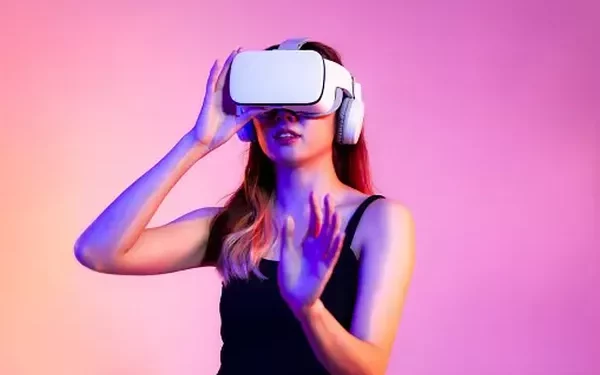In the ever-evolving landscape of digital technology, the concept of the “Metaverse” has captured the imaginations of tech enthusiasts and entrepreneurs alike. But is the Metaverse truly poised to become the new internet? In this comprehensive article, we will explore the intricacies of the Metaverse, its potential implications, and whether it could indeed overshadow the internet as we know it today.
The Metaverse Unveiled: What Is It Exactly?
The Metaverse, a buzzworthy term in tech circles, represents a virtual universe bridging augmented reality (AR), virtual reality (VR), and the internet. It’s a shared, immersive digital realm where real-time interactions unfold. Unlike the internet’s two-dimensional nature, the Metaverse offers a three-dimensional environment where users can engage as avatars, blurring the line between the physical and digital worlds. Tech giants and startups are actively developing this concept, incorporating 3D spaces, blockchain technology, and immersive experiences. The Metaverse holds immense promise, promising to reshape how we socialize, work, and entertain ourselves, but it’s a dynamic frontier with its own set of challenges and opportunities.
The Metaverse vs. The Internet: How Do They Compare?
While the Metaverse shares some similarities with the internet, they are fundamentally distinct in several ways.
1. Connectivity: The internet connects people through websites and social platforms, whereas the Metaverse offers a seamless 3D environment where users can interact as if they were in the same physical space.
2. Immersive Experiences: The internet primarily delivers information and services, whereas the Metaverse focuses on providing immersive experiences and digital interaction.
3. Ownership and Control: In the Metaverse, users may have more ownership over their digital assets and identity, thanks to blockchain technology.
Metaverse Applications: Exploring Its Diverse Potential
The Metaverse isn’t just a concept; it’s a dynamic space with a multitude of applications across various industries.
1. Gaming and Entertainment: The gaming industry is one of the Metaverse’s primary adopters. Virtual concerts, interactive gaming worlds, and even virtual real estate markets are flourishing.
2. Education and Training: In the Metaverse, educators can create immersive learning environments, and professionals can train in realistic simulations.
3. Commerce and Socializing: Businesses are exploring Metaverse-based stores and social spaces for networking and communication.
4. Healthcare and Therapy: Virtual reality is used for therapy, pain management, and medical training.
Challenges on the Path to the Metaverse Dominance
As promising as the Metaverse may be, it faces several hurdles before it can challenge the internet’s dominance.
1. Technical Hurdles: Achieving seamless, high-quality experiences in the Metaverse requires overcoming technical challenges such as bandwidth limitations and hardware constraints.
2. Privacy and Security: The Metaverse’s immersive nature raises concerns about privacy, data security, and identity theft.
3. Regulatory Issues: Governments are still grappling with how to regulate this evolving space, leading to uncertainty in its development.
The Future of the Metaverse: Speculation and Projections
The Metaverse’s future is ripe with speculation and projections. Economically, it could usher in a new era, potentially generating trillions in revenue through virtual real estate, digital goods, and services. In the realm of work and collaboration, it may revolutionize how we conduct business with virtual offices and remote work becoming commonplace. On a cultural level, it might prompt a shift in our perception of reality and identity, leading to profound societal changes. While the Metaverse’s true course remains uncertain, its transformative potential is undeniable, making it a space to watch closely as it evolves and shapes the way we interact with the digital realm.
See Also: The Cost of Entering Metaverse Gaming World: A Full Guide
Conclusion
In conclusion, the Metaverse is undoubtedly a groundbreaking concept with enormous potential. It may transform industries, redefine social interaction, and create entirely new opportunities. However, it’s essential to remember that it is not here to replace the internet; rather, it complements it. The internet will remain an integral part of our digital lives, while the Metaverse is set to expand the horizons of what’s possible in the virtual realm. The road to Metaverse dominance is still a work in progress, and only time will tell whether it truly becomes the new internet.
Related topics:
















